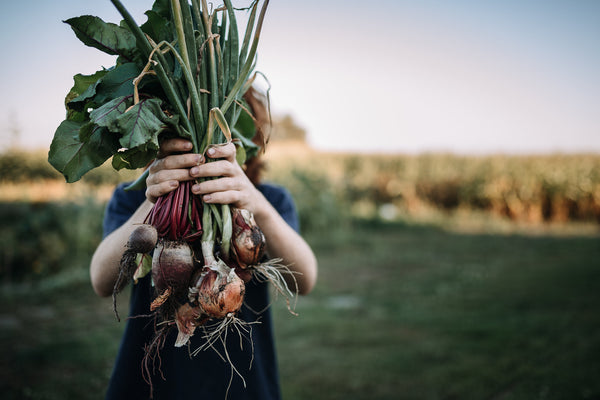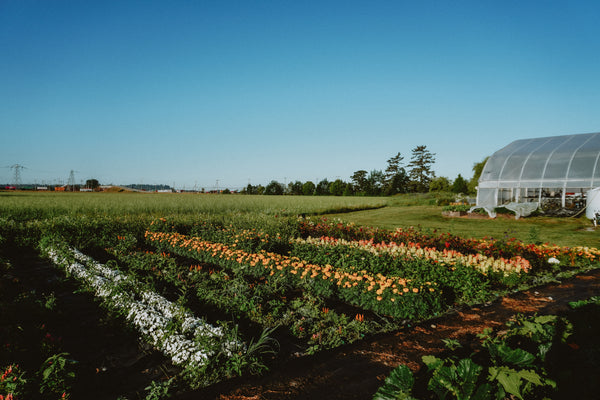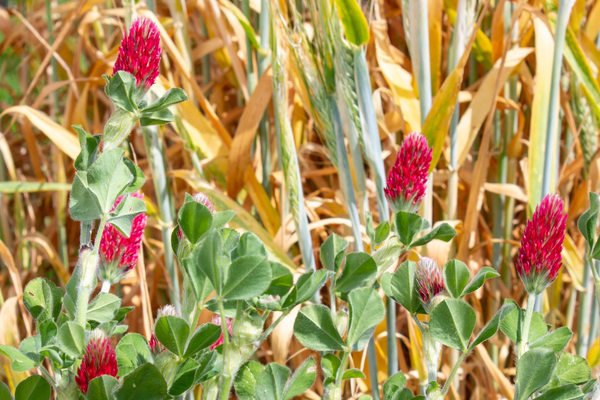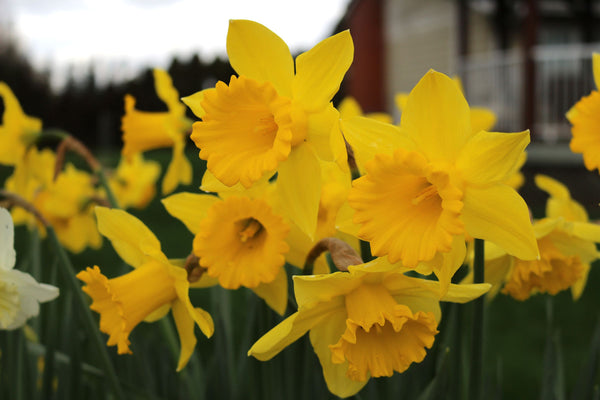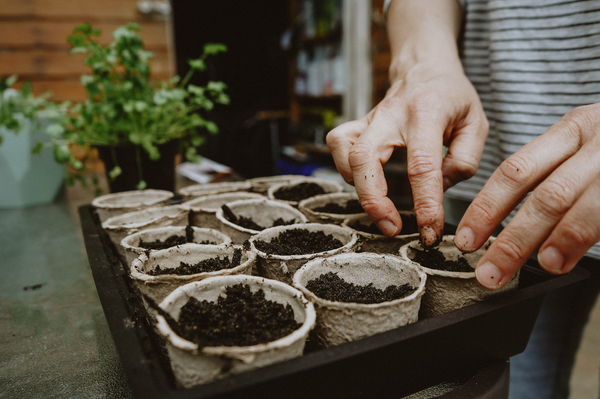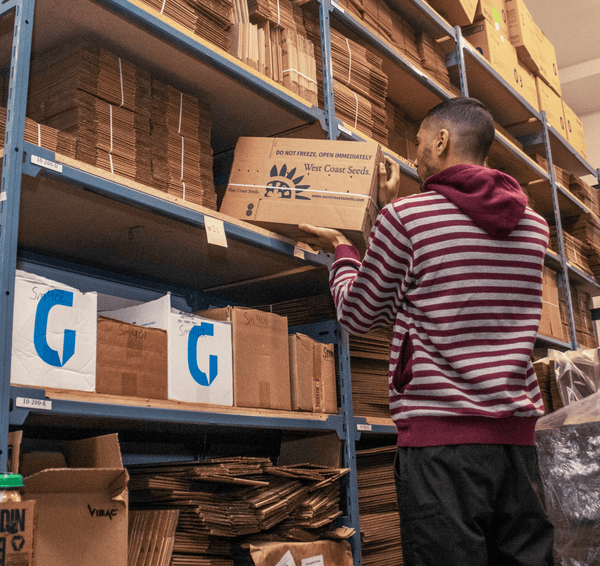Farm to School BC is a healthy eating program for K-12 students that brings healthy, local, and sustainable food into schools across British Columbia and provides students with hands-on learning opportunities that develop food literacy. Administered by the Public Health Association of BC since 2007, Farm to School BC has funded over 270 schools across the provinces to start farm to school programs, many of which involve growing and sowing food.

Teaching food literacy with hands-on learning.
Despite the past year’s challenges for schools due to the pandemic, teachers still found ways to engage with hands-on learning through planting and growing food. “Growing food provided a safe space to come together while staying apart. Kids were encouraged to dig their hands into the ground, get dirty, and learn through doing. Kids were allowed to be kids” explained Farm to School BC Provincial Manager Richard Han. “The cyclical and hands-on nature of growing food requires a person to be present in the here and now. Teachers noted that the cycle of planning, prepping, growing, and sowing provided stability to their students in a world of uncertainty.”
There are hundreds of farm to school programs within the Farm to School BC network of schools taking place across the province. Schools receive support from Farm to School BC’s local Animators working in their region, however, they also rely on the support of community partners. Han explained, “Community connectedness is a key element to the Farm to School BC model. The most successful and sustainable Farm to School BC programs are built upon strong relationships between schools and farmers, community members, and support organizations, tapping into local knowledge, passion, skills and resources.”
One of these partnerships is with West Coast Seeds who has been a generous supporter of Farm to School BC and its network schools for many years. One significant contribution from West Coast Seeds is their donation of seeds for school gardens. Every year, Farm to School BC distributes donated seeds to our six regional hubs which include: Central Island, Greater Victoria, Kamloops, Surrey, Northwest, and Vancouver. This year the seed distribution included 17 school districts and over 100 schools that are actively participating in the Farm to School BC program.

A little fun with watering cans while learning to sow seeds.
In Surrey, 15 schools received donated seeds, benefiting an estimated 6000 students. “It was such a thrill to be able to deliver these seeds to schools across Surrey” explained Claudia Páez Surrey Region Farm to School BC Animator. “I loved meeting with the teachers, discussing their planting plans, and touring their gardens. It helps put in perspective the impact farm to school activities have in the community.” These donated seeds in Surrey were used in a variety of programs including medicine wheel gardens, school gardens, and planting in courtyards and classroom windows as well as being used in agricultural programs.
In the Central Island region, 115 seed packages were sent to 13 different schools as part of a 'seed giveaway' and the Northwest Region seeds were included as part of school care packages this spring to eight schools. “Teachers were surprised and grateful to receive these meaningful packages,” explained Erin Udal, Northwest Region Farm to School BC Animator. “Three of our new school grantees are working to extend the growing season in the north with greenhouse infrastructure additions to their gardens, so seeds have been welcomed to continue their efforts this summer!”

Empowering youth to grow food and cooperate in the harvest.
In the Vancouver Region, 21 schools from four school districts received donated seeds. When asked why the local food system is important to them, one teacher in the Vancouver Region expressed, “It gives us hope and inspiration. It brings out the most tender, protective, and vulnerable part of children. It makes us stronger, better people. It makes us care and cooperate more. We become citizens of the earth together. It is life-changing."
The Farm to School BC model aims to empower and support students and school communities wherever they are in their food literacy journeys and this past year we saw school communities rising well beyond the challenge. “Although this year has been difficult, we’ve witnessed tremendous resilience and passion from educators and young growers wanting to learn about what it takes to go from seed to plant to plate,” stated Han. Through the dedication of educators, ongoing support of community partners, and curiosity of students, farm to school activities continue to thrive in British Columbia.
Thank you to all the school communities and farm to school supporters across the province for providing such an important learning opportunity for the next generation and thank your West Coast Seeds for your ongoing support and commitment to food literacy in British Columbia.
Interested in learning more about Farm to School BC? Visit their Website, Facebook, Instagram, and Twitter.
For more information about Farm to School BC, contact Communications Coordinator, Chelsea Woolhouse at communications@farmtoschoolbc.ca or Provincial Manager, Richard Han at prov.manager@farmtoschoolbc.ca.

Funding over 270 schools to start their own farm to school programs.
Background
Farm to School brings healthy, local, and sustainable food into schools and provides students with hands-on learning opportunities that develop food literacy, all while strengthening the local food system and enhancing school and community connectedness.
Since 2007, Farm to School BC funded over 270 schools to start their own farm to school programs, across the province in urban, rural, remote, and Indigenous communities and boasts support from dozens of NGO members and community partners.
Farm to School BC is a program of the Public Health Association of BC and is supported by the Province of British Columbia and the Provincial Health Services Authority.





